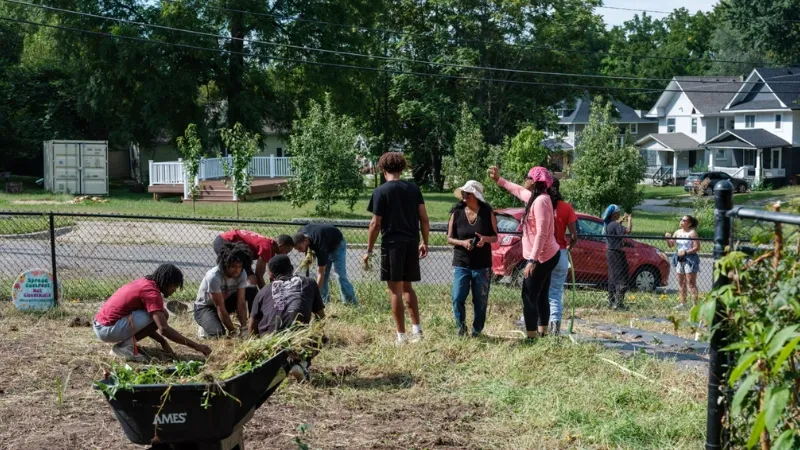News
Journalism as Community Power: The KC Defender’s Food Program
September 24, 2025

In Kansas City, a Black-owned newsroom turns reporting into action, tackling food insecurity while rebuilding civic trust.
Community-rooted journalism is more than reporting—it listens, responds, and organizes alongside the people it serves. Few examples illustrate this better than Pivot Fund grantee The Kansas City Defender. When the last grocery store in a historically Black neighborhood shut its doors this summer, residents were suddenly left without access to fresh food. In a city already grappling with food deserts, the closure could have spelled disaster.
But rather than wait for city officials to act, The Defender stepped in. Partnering with community leaders, the Black-owned newsroom helped launch the Hamer Free Food Program, a mutual aid initiative tackling food insecurity head-on while strengthening trust between media and community.
The September–October rollout is delivering produce boxes to 50 households within a mile of the closure. In its first week, more than 150 people signed up to support, 70 volunteered as community food leaders, and $3,000 was pledged.
“I’ve always approached my work with The Defender as an organizer first, and a media worker second,” said Ryan Sorrell, founder of The Defender. “For me, it’s about asking how we can use our resources to support people. That approach—being active and present on the ground—has made it easier to build trust and launch programs like this.”
The program isn’t separate from The Defender’s journalism—it’s embedded in it. Articles explain how the program works, highlight urgent needs, and offer “How to Plug In” steps for readers. Clear systems—program details, timeline, and compensation model—ensure accountability. Earlier this year, when federal cuts hit local growers and neighborhood associations, The Defender convened a Town Hall on Black food sovereignty, laying the groundwork for this effort. By amplifying leaders already doing the work, the newsroom turned reporting into collective action.
Why This Story Matters Now
The Hamer Free Food Program is more than food distribution—it’s journalism functioning as civic infrastructure. At a time when trust in media is low and newsrooms are disappearing, The Defender is demonstrating how local outlets can do more than inform: they can mobilize, connect, and build resilience.
The program is built on a local partnership between The Kansas City Defender, KC Black Urban Growers, the Ivanhoe Neighborhood Association, and Black-owned farms in the KC metro. Produce is purchased at fair market rates to support farmers, then distributed by trained Community Food Leaders and volunteers. Each box also includes a mini print edition of The Defender with revolutionary political education, food justice information, Black farmer information, and ways to get involved with the movement.
This is civic news in action. Reporting identified the problem. Partnerships created solutions. And journalism itself became the bridge—turning coverage into a call to action.
For other publishers, the lesson is clear: impactful journalism starts with listening, deepens through partnerships, and grows by making participation accessible. Done well, it doesn’t just tell stories—it helps communities write new ones.